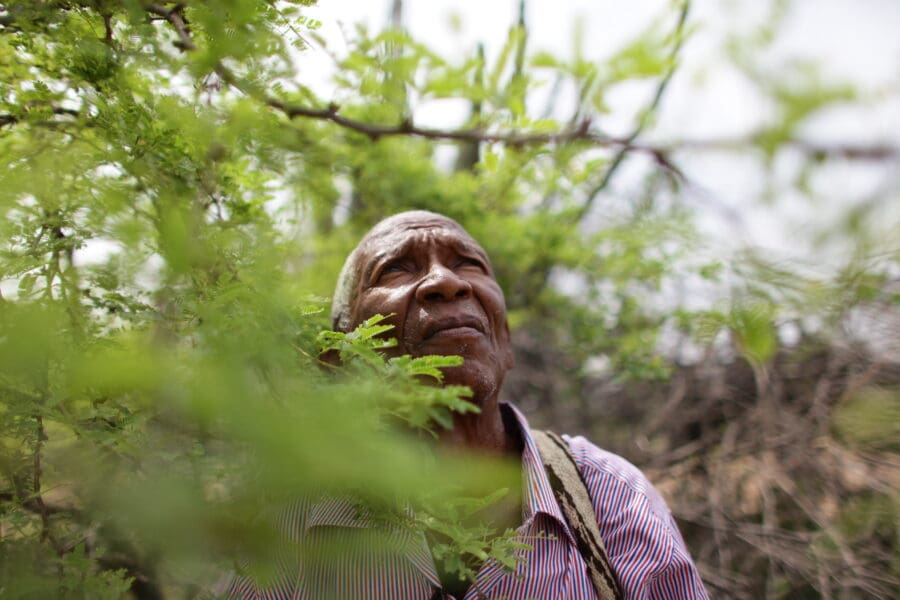How RRI’s coalition in Colombia is helping to implement the country’s Peace Accord and secure the rights of its Indigenous and Afro-descendant Peoples.
Lack of secure land rights has long been a key driver of war and conflict in Colombia. Since the formation of the new republic, the country’s land ownership has accumulated in the hands of a small number of elite families, leaving thousands of rural populations without access to land.
A 2016 historic peace agreement signed between the government and the rebel movement FARC promised to move the country to the end of the longest internal armed conflict in the history of the Americas. The accord, “Conclusion of the Conflict and the Construction of Stable and Lasting Peace,” recognized land ownership as the foundation of the causes of the conflict – one that remains unresolved to date.
The peace accord also contained an Ethnic Chapter, which establishes the principles of no regression and safeguards considerations to guarantee the respect of Indigenous and Afro-descendant Peoples’ collective rights, such as Free, Prior and Informed Consent (FPIC) and the respect of the territorial rights accrued under national and international legislations.
RRI’s role in supporting the peace accord
Since 2016, RRI has supported Colombia’s rightsholder and civil society organizations in their struggle to ensure respect for collective rights and to ensure implementation of the peace accord’s Ethnic Chapter. In 2016, in alliance with the Pontifical Javeriana University, Association Ambiente y Sociedad and the Norway Embassy, RRI supported an unprecedented dialogue on the role of collective tenure security in Colombia’s peace process and climate change policy. The event brought together 117 participants from the government, donors backing the peace agreement, and Indigenous and Afro descendant communities. This was the first national debate held during the peace negotiation to bring collective tenure rights into public attention; the rest of the agreement had focused on individual land rights.
In 2018-2020, RRI supported the creation of the Ethnic Commission of Peace, initiated by Indigenous and Afro-descendant delegates to monitor the government’s compliance with the Ethnic Chapter in the peace accord’s implementation. Through RRI’s Strategic Response Mechanism, RRI equipped members of the Ethnic Commission (including ONIC, CONPA, Traditional Indigenous Authorities, and Mayor Government organizations) with evidence-based analysis and data to help it perform its monitoring role.
In 2019, the Ethnic Commission produced its first report assessing the implementation of the Peace Accord’s Ethnic Chapter, revealing a lack of attention by the national government to the Chapter’s mandates. In 2020, in response to the government’s call for technical-budgetary proposals to implement the accord, including the Ethnic Chapter, ONIC submitted a proposal to the government, which won support from the multi-donor fund backing the peace accord.
Meanwhile, RRI collaborators Association of Arhuaca Authorities of La Sierra Nevada (ASO-CIT) and the National Commission of Indigenous Territories (CNTI) are focusing on addressing territorial conflicts in the Guainía and Altillanura regions, caused by limited recognition of Indigenous Peoples’ territorial claims and growing pressures from private development projects. These regions are also facing increased pressure to expand agricultural production in Altillanura and mining projects in the Guainía region.
Concurrently, RRI collaborators ASO-CIT and CNTI are conducting research, communications, litigation, and political advocacy to bring attention to the loss of ancestral Indigenous territories in both regions due to conflict, lack of legal rights, and increase in deforestation and exploitation of natural resources. A series of short reports and didactic materials have been produced and shared extensively via social media #GuainiaConDerechos and CNTI’s website. Their extensive analytical and advocacy work has led to the following impacts:
-
- Favorable rulings for protection of claims submitted by two communities in the Guainía region
- Strengthened dialogue between Indigenous organizations and the Delegate Ombudsman for Constitutional Affairs and the Attorney General’s Office
- Increased representation of Indigenous Peoples at the Constitutional Court in February 2021 and the Inter-American Court of Human Rights (IACHR) in June 2021
- Creation of amicus briefs for the guardianship of the La Montaña community in Nariño and the Dochama community, both of which resulted in positive rulings
- Legal support for the Siona Jai Ziaya Bain People, a displaced community seeking legal territorial rights.








